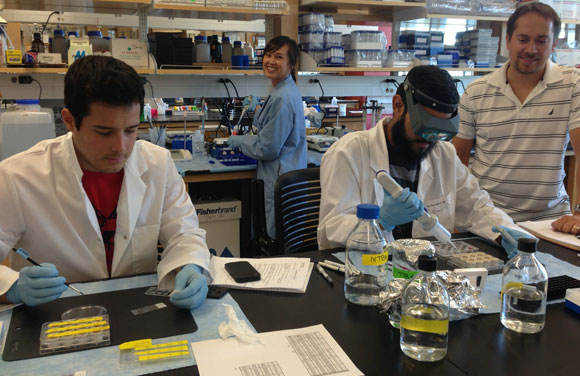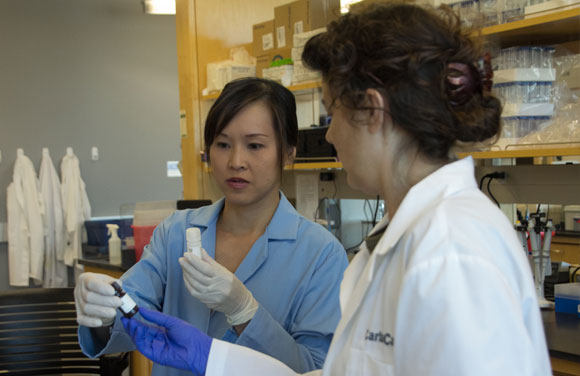Over 50 Faculty and 30 PhD Students
The Cellular and Molecular Medicine (CMM) and Immunobiology (IMB) graduate programs at the University of Arizona have merged to create the Graduate Program in Molecular Medicine (GPMM). GPMM is an interdepartmental, multidisciplinary training program that fosters the development of scientists and educators who are prepared for lifelong participation in research and other intellectual pursuits. With an emphasis on bridging basic and translational science, Molecular Medicine trainees receive advanced training in the theory and practice of biomedical science. There are opportunities to investigate human health and disease ranging from biophysical studies at the atomic level, to modeling critical cellular process in tractable systems, to clinical research. The exposure and skills that our trainees acquire prepare them for careers in biomedical research (including academia and the biotechnology industry), science education, journalism, and public policy.








